Search Results
Showing results 41 to 56 of 56
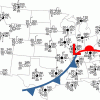
Drawing Conclusions
Source Institutions
In this weather forecasting activity, learners determine the location of cold and warm fronts on weather plot maps.
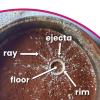
Make An Impact
Source Institutions
In this hands-on activity, learners simulate the crashing and smashing of a meteor impact using household cooking supplies.

The Rain Man
Source Institutions
In this activity, learners observe the hydrologic cycle in action as water evaporates and condenses to form rain right before their eyes.
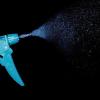
The Search for Secret Agents
Learners tour their school or home looking for sources of indoor air pollutants (IAPs).
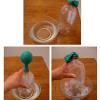
Turning the Air Upside Down: Warm Air is Less Dense than Cool Air
Learners cover a bottle with a balloon. When they immerse the bottle in warm water, the balloon inflates. When they immerse the bottle in a bowl of ice, the balloon deflates.

Let's Bag It
Learners observe and discuss a vacuum cleaner as a model of a baghouse, a device used in cleaning industrial air pollution.

Capturing Carbon Dioxide
Source Institutions
In this activity, learners investigate carbon sequestration by creating a carbonated beverage out of apple juice and dry ice.

Water, Water Everywhere
Source Institutions
In this activity, learners estimate how much water they think can be found in various locations on the Earth in all its states (solid, liquid, and gas) to discover the different water ratios in the Ea

The World's Water
Source Institutions
Water on Earth is in lakes, the ocean, rivers, underground, and frozen glaciers.

Hot Stuff!: Investigation #3
Learners test two jars of ice water, one covered and one open, for changes in temperature. After placing the jars in the sun, learners discover that the covered jar cools down more slowly.

What's Hiding in the Air?: Rubber Band Air Test
Learners build devices from rubber bands to test for invisible air pollutants.

What is a "Model"?
Source Institutions
In this activity, learners simulate the behavior of the atmosphere.
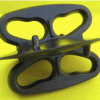
Air Pressure and Dent Pullers
Source Institutions
In this activity, learners simulate Otto von Guericke's famous Magdeburg Hemispheres experiment.

Make Your Own Weather Station
Source Institutions
This three-part activity shows learners how to build three meteorology tools: a wind vane, a rain gauge, and a barometer.
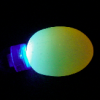
Why is the Sky Purple?
Source Institutions
This simple hands-on activity demonstrates why the sky appears blue on a sunny day and red during sunrise and sunset.
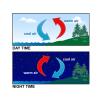
Turning the Air Upside Down: Spinning Snakes
Learners color and cut out a spiral-shaped snake. When they hang their snake over a radiator, the snake spins.
